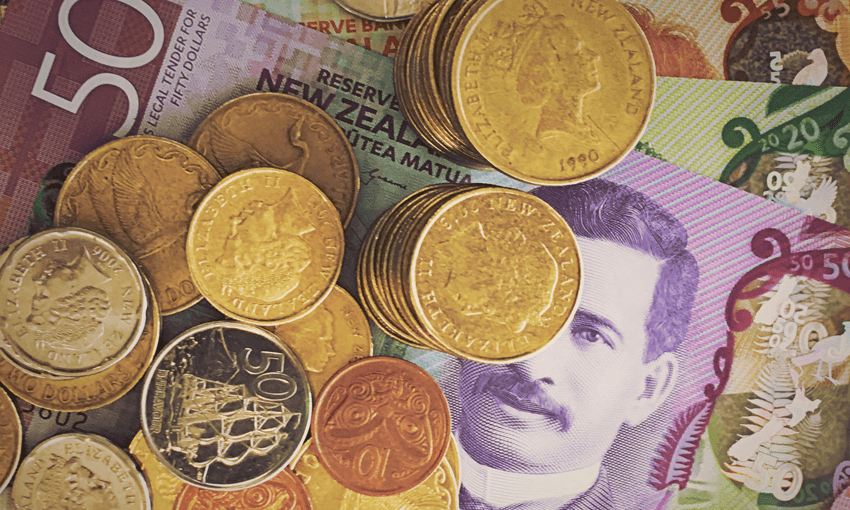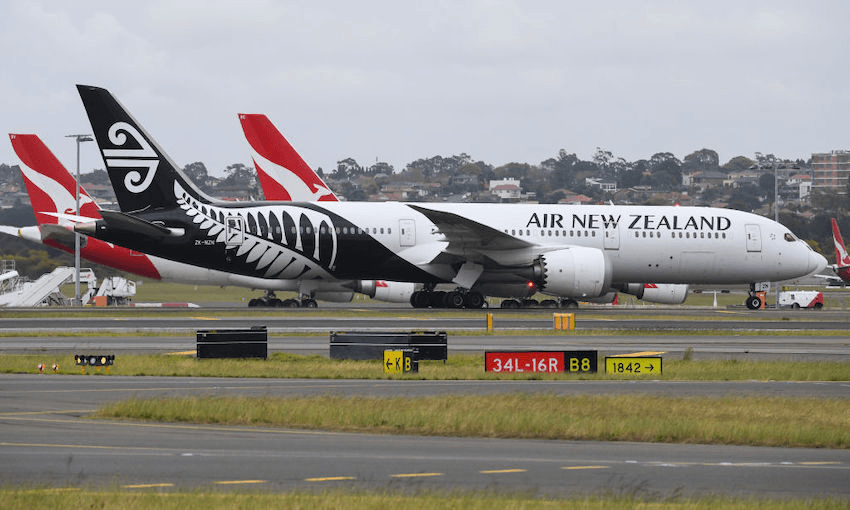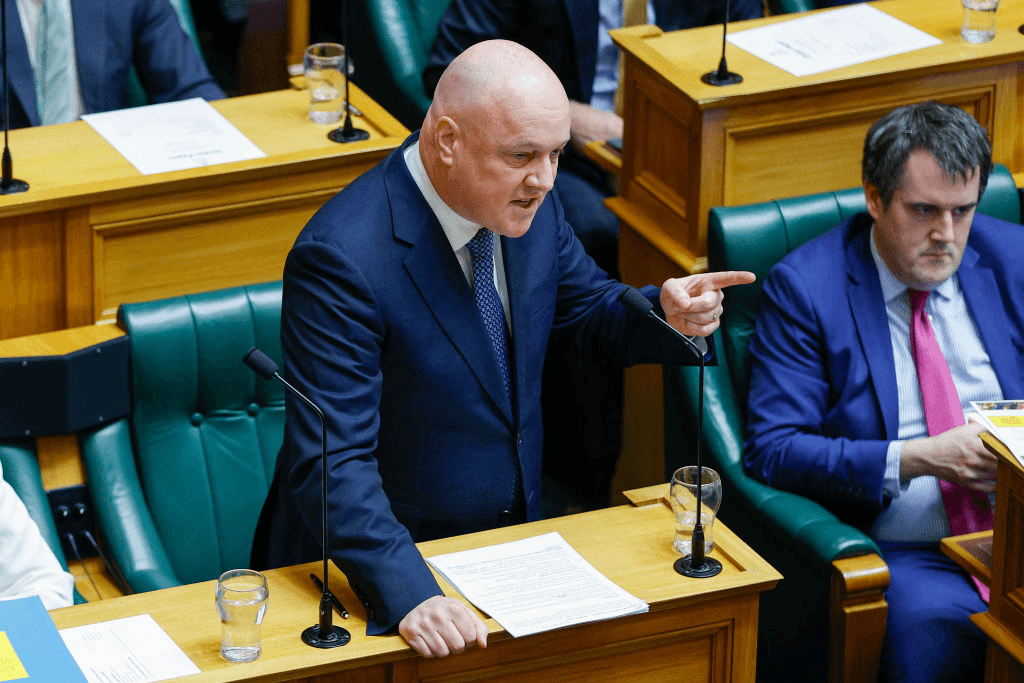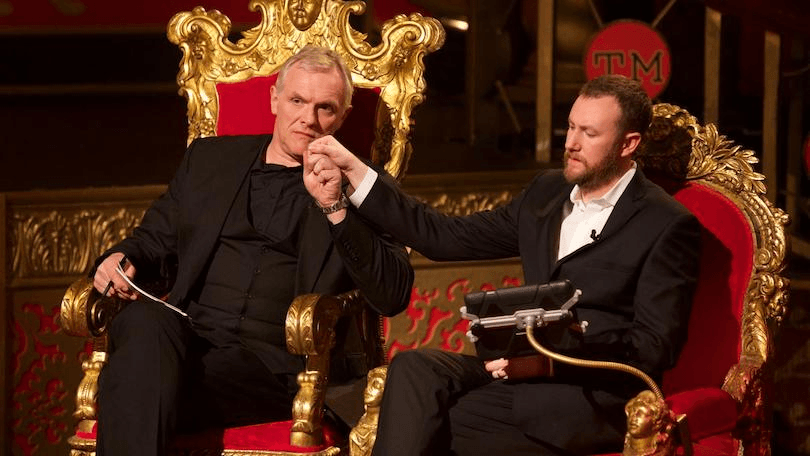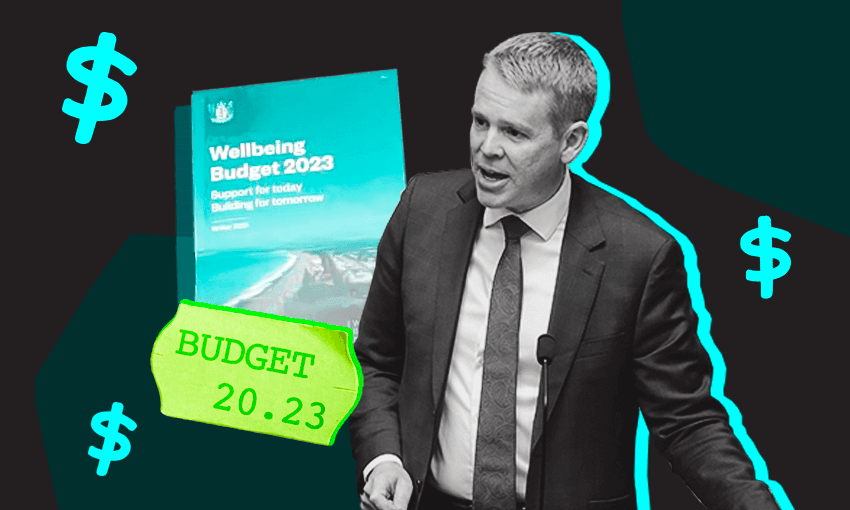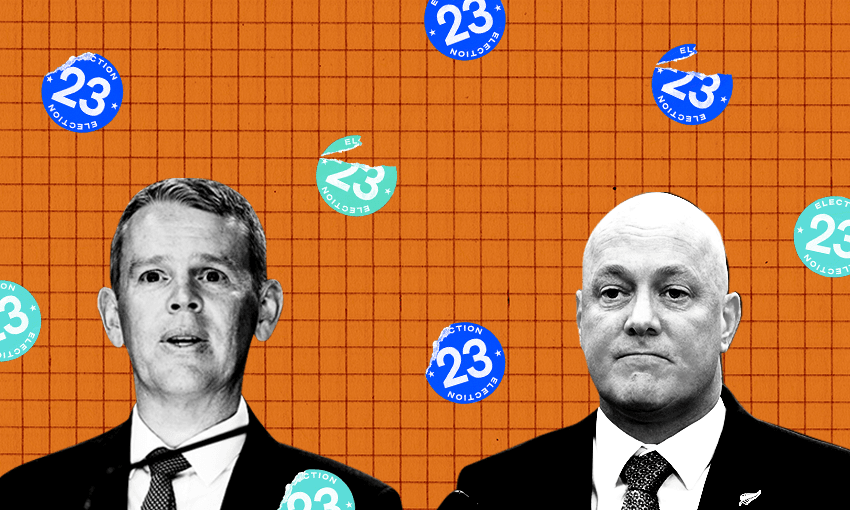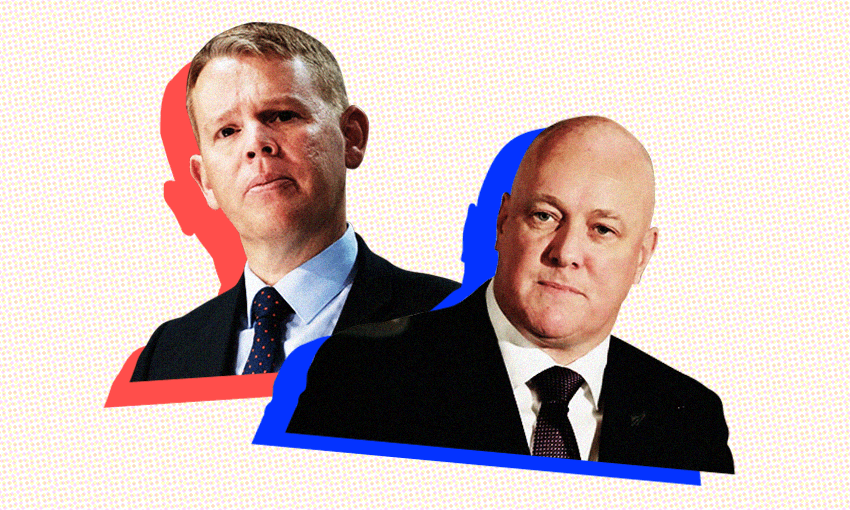You just have to watch through the rest of this shiny, Timothée Chalamet-filled trailer to see it.
LIVE UPDATES
Cash rate steady at 5.5%
For the first time since mid-2021, the Reserve Bank has chosen to keep the official cash rate steady for a consecutive update. It’s remained at 5.5%, where it has been since May 24 when the central bank chose to move it up by 0.25 basis points from 5.25%.
The decision to stay the course is in line with what had been set out by the Reserve Bank, and was widely tipped by economists.
In a statement, the Monetary Policy Committee said the level of interest rates were constraining spending and inflation pressure as anticipated and required. “The committee agreed that the OCR will need to remain at a restrictive level for the foreseeable future, to ensure that consumer price inflation returns to the 1 to 3% annual target range, while supporting maximum sustainable employment,” they said.
“Global economic growth remains weak and inflation pressures are easing. This follows a period of significant monetary policy tightening by central banks internationally. Global inflation rates continue to decline, assisted by the normalisation of international supply chains, and the decline in shipping costs and energy prices. The weaker global growth has led to lower export prices for New Zealand’s goods.”
The Reserve Bank said inflation was expected to continue to decline from its peak and there were “signs of labour market pressures dissipating and vacancies declining”.
The next OCR update will be on August 16.
Net migration to Australia highest since 2013
New figures from Stats NZ show a net migration loss of 13,400 to Australia in 2022, up from 5,400 the year before.
“The net migration loss to Australia in 2022 is the largest for a calendar year since 2013, but well below the largest net loss of 43,700 in the March 2012 year,” said Stats NZ’s population indicators manager Tehseen Islam.
Last year’s net migration loss was made up of 33,900 migrant departures and 20,400 migrant arrivals from Australia. “Migrant departures to Australia have increased to levels last seen in 2014−2019,” Islam said.
Between the years 2004 to 2013, there was an average migration loss of about 30,000 people every year. Between 2014 and 2019, it was just 3,000. The following years were severely impacted by the Covid-19 pandemic, but international travel has largely now returned to normal.
Opposition not buying tax rule out: ‘You can’t trust Labour on tax’
Chris Hipkins has ruled out a wealth tax or a capital gains tax – but it hasn’t convinced the opposition that one or both could still be coming.
National’s leader Christopher Luxon said that Labour can’t be trusted when it comes to tax. “Labour has been cooking up both a wealth tax and a capital gains tax – and now has cynically tried to rule them out to protect their position in the polls,” he said.
“You can’t trust Labour on tax. They ruled out the ute tax and brightline extension in 2020 and then promptly implemented them both after the election.”
According to Luxon, a Labour-led coalition with the Greens would see the prime minister row back his tax rule out. “The coalition of chaos is plainly divided on tax, with the Greens hugely in favour of wealth taxes and Labour fighting internally over them. The chaos has come before the coalition,” said Luxon. “There is division within the parties on the left, and between them on this core aspect of economic policy.”
Act’s David Seymour is pretty much on the same page, suggesting that the Greens and Te Pāti Māori would “team up” with Labour to force through a capital gains tax in the next term. “Hipkins’ arm wouldn’t be that hard to twist. He’s on the record wanting a CGT, the only reason he’s saying this now is that he wants to be elected in October more,” said Seymour.
Is Taskmaster doing a Drag Race…?
We’re big fans of Taskmaster here at The Spinoff (see: our comprehensive ranking of all the tasks from Taskmaster NZ) which is why the news of another possible spin-off in the UK has me a bit worried.
According to reports, former TM winner Ed Gamble is hosting a pilot for a new show called Foodmaster. In it, celebrity contestants will try to answer the question: “Food is great, but how can it be improved?”
It’s just a pilot, so it may never make it to a full series. And even if it does, it might be great. But with a Junior Taskmaster spin-off already on the way (hosted by Rose Matafeo, though, so that’s cool) and global editions popping up around the world, is anyone else worried the Taskmaster-verse may be spreading itself… quite thin? I’ve stopped watching RuPaul’s Drag Race and any of its myriad international editions for this precise reason.
Anyway, Taskmaster NZ will be back later in the year and I’m still very hyped (if you want us to update our ranking, well, don’t tempt us cause we probably will).
Tax switch, wealth tax were on the table ahead of this year’s budget
Newly released documents show just what the government was considering before this year’s budget.
It’s been confirmed today that Chris Hipkins won’t introduce a new wealth tax or capital gains tax after the election, pledging instead to keep things “simple”.
The prime minister also revealed he backtracked on plans to move ahead with a new tax in this year’s budget. And new documents show it was more than just a wealth tax being looked at.
As Newshub explains, it was proposed that the government could move ahead with a tax-free threshold for the first $10,000 of income. This was estimated to save people about $20 a week. Alongside this, there was talk of increasing the lower 30% tax threshold up to $50,000.
To pay for all this, a new wealth tax of 1.5% on assets over $5 million would have been implemented, with about 46,000 New Zealanders caught up. It wouldn’t have applied to the family home.
Hipkins acknowledged today that this work was under way, but said he made the call to can it. “We simply didn’t have a mandate to implement those tax changes.”
‘End of story’: Hipkins rules out future wealth or capital gains tax
The prime minister has announced that his party’s election year tax policy won’t include either a wealth tax or a capital gains tax, following the lead set by his predecessor Jacinda Ardern. And he’s revealed he scrapped early plans for a new tax as part of this year’s budget.
In a statement issued by the Labour Party, Chris Hipkins, who is currently at a Nato summit in Lithuania, said he had drawn a line under speculation about the party’s tax policy.
“I’m confirming today that under a government I lead there will be no wealth or capital gains tax after the election. End of story,” Hipkins said. “With many Kiwi households struggling, now is simply not the time for a big shake-up of our tax system. New Zealanders I talk to want certainty and continuity right now, and that’s what I’m delivering with this policy.”
While Ardern had explicitly ruled out a capital gains tax under her leadership, there had been some speculation that Hipkins would choose to reverse that or move ahead with the alternative of a broader wealth tax.
Hipkins confirmed there had been work under way on a potential wealth tax and capital gains tax as part of a “tax switch” in this year’s budget. But, ultimately, he made the call not to proceed with it. “We simply didn’t have a mandate to implement those tax changes,” he said. (A Newshub poll from May showed 53% of those surveyed backed a wealth tax, with 35% against).
A proactive release of budget documents later today will likely reveal that early behind the scenes work.
“When I became prime minister I said the government I lead will focus on the basics. Experimenting with a wealth tax doesn’t fit that approach which is why I’m ruling it out. My position on CGT is a continuation of the position the government has held since 2018,” said Hipkins today.
The announcement follows a dismal poll for both Hipkins and Labour. The Talbot Mills poll, leaked to the Herald yesterday, had Labour falling behind National by about five points. The centre-right bloc of National and Act was also pulling comfortably ahead.
“In uncertain economic times, my view is it’s best to keep things simple,” said Hipkins. “As such the budget focused on targeted support for families that didn’t drive up inflation. Our election campaign policies will be similar.
“The reality is National’s tax cuts are unaffordable and inflationary. Just as we are getting on top of price increases they would borrow to deliver an inflationary sugar hit.”
Hipkins said details of Labour’s tax policy will be released soon, “but New Zealanders can be assured the government I lead is listening and will be focused on making life a little easier without implementing big uncertain changes”.
Mystery BBC presenter faces new allegations
An update on a story I brought to you earlier in the week, with news out of the UK that the mystery BBC presenter at the centre of serious allegations is facing new claims.
The as-yet-unknown broadcaster was first accused of paying a teen for sexually explicit images. Now, reports the BBC, a young person has come forward to say they received threatening messages over a dating app from the presenter.
According to media reports, the individual was in their 20s and was first contacted anonymously by the BBC host. They were asked to meet up, but the pair never did. However, the young person said they received “abusive, expletive-filled messages” after suggesting they might publicly name the individual.
This young person has no connection to the teen at the heart of the first allegation.
While the host’s identity remains hidden, there is mounting pressure for the individual to be named.
The Bulletin: Just when we thought we had some good news about trains…
On Monday, the Western Line in Auckland returned to dual-line running after nearly three years of being reduced to a single track. Last night news broke that the Te Huia passenger train service that runs between Hamilton and Auckland has been temporarily banned from operating in Auckland following two incidents. Commuters will be back to taking buses from Papakura, as it was when the service first started.
Waka Kotahi has issued a prohibition notice to KiwiRail, preventing the rail service from entering the Auckland metro area and terminating at The Strand in Parnell because of recent Signal Passed at Danger (SPAD) incidents. A SPAD A event is defined as an incident when the train driver has failed to obey a red signal and has entered a section of track where there is the potential for conflict with another rail service. Waka Kotahi’s Neil Cook said the Te Huia service had been banned from the Auckland area to maintain the safety of the rail network.
Want to read The Bulletin in full? Click here to subscribe and join over 38,000 New Zealanders who start each weekday with the biggest stories in politics, business, media and culture.
Hipkins responds to ‘disappointing’ poll result: ‘A sharp reminder’
The reality of being prime minister is that you can be on the other side of the world, meeting global leaders, and be asked a lot of questions about what’s going on back in New Zealand. Chris Hipkins has had his fair (or unfair) share of practice in this area during recent overseas trips, with the defection of Meka Whaitiri playing out while he was in London and questions about Kiri Allan overshadowing parts of his trade tour of China.
And today, as he attends a Nato conference in Lithuania, Hipkins has faced questions over a poll result that shows his party slipping and the centre-right bloc of National and Act now comfortably ahead.
The Talbot Mills poll, which I wrote up here, has the National Party pulling out in front of Labour, 36 points to 31.
Speaking from Vilnius, Hipkins told media he’s heard the message loud and clear. “Any poll result like that is disappointing, but it is real, and I take it seriously,” Hipkins said, according to Stuff’s Thomas Manch.
“It is an indication that New Zealanders don’t feel like we’ve been focused on the issues that they want us to be focused on, and I think that’s a message that the whole of the Labour Party will hear.”
The poll provided a “sharp reminder” that New Zealanders wanted the government to be focused on the issues that matter to them, he said. “And that is exactly what they will see over the next 90-something days until the election.”
He added: “I know that the last few months have been a bit messy for the Government. We really need to return our laser-like focus on to the issues that New Zealanders care about.”
National’s Christopher Luxon told RNZ the only poll that mattered was election day and reiterated his line that New Zealanders had a choice between a “coalition of chaos” or a “strong, stable National government”.
The current government was “broken, falling apart” and not “focussed on the things that matter”, added Luxon.
